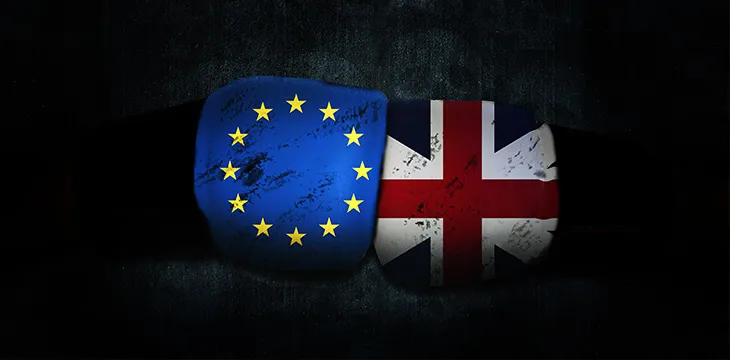|
Getting your Trinity Audio player ready...
|
If Queen Elizabeth II were to carry a cryptocurrency wallet, would it be something like a Trezor, or a software wallet stored on her smartphone? There’s always at least one person willing to try to scam people out of their money with every new opportunity that surfaces. The latest comes via the anticipated separation of the U.K. from the European Union, dubbed Brexit, which has seen the creation of a phishing scam that will save the local economy once the Brexit transition is complete. It only costs $2.5 million in BTC, too, and comes from Queen Elizabeth II herself.
A personally-addressed “royal” letter has been distributed to British citizens that asks them to save the country’s economy. A copy of the letter appeared on the LinkedIn page of IT firm Smarttask’s CEO, Paul Ridden, and reads that the queen wants a “certain number of people to save Great Britain’s economy.” According to the letter’s grammar, the queen never received a proper English education. The letter continues:
As you know, the Brexit will happen quite quickly, and we have not reached a bilateral agreement with the European Union. To save and sustain the U.K.’s economy after Brexit, we must pay to the European Union £19 billions [sic] [$23.41 million]. We currently have more than 82% of money available [sic], and we need to rise [sic] the rest until Oct 19th 2019 [sic].
In addition to the fact that fraud is an offense punishable by fines and jail time, impersonating royalty in the U.K. can also be hazardous to one’s health. Among many other caveats, a treason felony can be charged when there is intent to “compass, imagine, invent, devise, or intend to deprive the sovereign of the Crown.” Impersonating royalty could definitely be argued as an attempt to deprive the queen’s rightful place. Fortunately for anyone caught, though, the death penalty has been abolished.
The would-be scammers also offered anyone who contributed “30% interest for a period of 3 months” and an assignment as a “Member of the Royal Warrant Holders Assiciation [sic].” They were also dumb enough to believe that saying that the letter should “remain anonymous” to prevent the subject from going “viral” would do anything but cause the letter to go viral.

 07-14-2025
07-14-2025 





